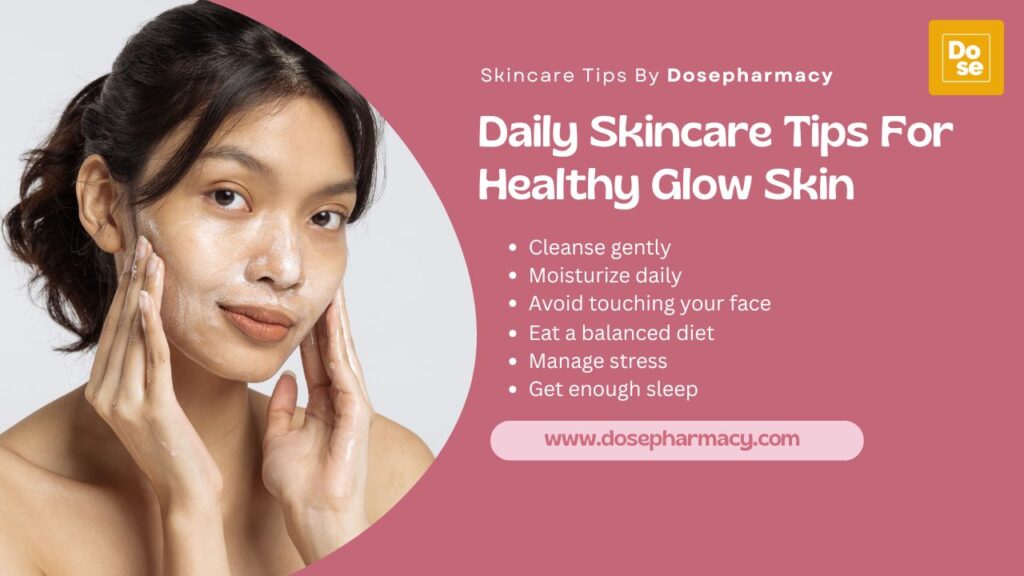Acne is one of the most common skin concerns that affects people of all ages. While hormones, genetics, and certain medical conditions can play a role, everyday habits also have a big impact on the health of your skin. The good news is that by practicing simple, consistent routines, you can greatly reduce the risk of breakouts and keep your skin clear.
In this article, we’ll explore the best daily habits to prevent acne, from skincare and diet to lifestyle changes.
1. Cleanse Your Face Twice a Day
Washing your face in the morning and at night helps remove dirt, oil, sweat, and makeup that can clog pores. Use a gentle, non-comedogenic cleanser. Avoid harsh scrubbing since it can irritate the skin and worsen acne.
2. Always Moisturize
Even oily or acne-prone skin needs hydration. Skipping moisturizer can lead to dryness, which may cause your skin to produce more oil. Choose an oil-free, lightweight moisturizer to maintain balance. For those exploring treatment options, trusted platforms like DosePharmacy provide access to acne care solutions with proper guidance.
3. Apply Sunscreen Daily
Sun exposure can damage skin, darken acne scars, and trigger breakouts. Using a non-comedogenic sunscreen every morning helps protect your skin and reduce irritation from UV rays.
4. Don’t Touch or Pick Your Face
Touching your face transfers dirt and bacteria from your hands, increasing the chance of new pimples. Picking or popping pimples can cause scarring and spread infection, making acne worse.
5. Use Acne-Friendly Products
Check skincare and makeup labels for terms like “oil-free,” “non-comedogenic,” or “won’t clog pores.” Using heavy or greasy products can block pores and lead to breakouts.
6. Exfoliate in Moderation
Gentle exfoliation 1–2 times a week can help remove dead skin cells and unclog pores. However, over-exfoliating can irritate the skin and trigger more breakouts. Look for mild exfoliants like salicylic acid.
7. Keep Hair and Pillowcases Clean
Oils and dirt from your hair and pillowcase can transfer to your face while you sleep. Wash your pillowcases regularly and keep hair away from your face, especially if it’s oily.
8. Maintain a Healthy Diet
Foods high in sugar, dairy, or grease may worsen acne for some people. Instead, focus on whole grains, lean proteins, vegetables, fruits, and foods rich in omega-3 fatty acids to support healthy skin.
9. Manage Stress Levels
Stress causes hormonal changes that can trigger acne breakouts. Daily habits like yoga, meditation, deep breathing, or even regular exercise can help reduce stress and improve skin health.
10. Prioritize Sleep
Getting 7–8 hours of quality sleep every night allows your body and skin to repair. Poor sleep can increase stress hormones and inflammation, making acne worse.
11. Stay Hydrated
Drinking enough water helps flush out toxins and keeps your skin hydrated. Aim for at least 6–8 glasses per day to support overall skin health.
12. Stick to a Routine
Consistency is key when it comes to acne prevention. It can take weeks or months to see improvement, so don’t switch products too quickly. A steady routine allows your skin to adjust and heal.
FAQs
1. Can washing your face too often cause acne?
Yes. Over-washing strips away natural oils, making skin dry and irritated. This can actually cause your skin to produce more oil, leading to breakouts. Twice a day is usually enough.
2. Is it okay to use natural remedies for acne?
Some natural remedies, like aloe vera, honey, or green tea, may help calm inflammation. However, not all natural remedies are effective, and some may irritate sensitive skin. It’s best to patch-test before use.
3. Does drinking water really clear acne?
While water alone won’t cure acne, staying hydrated helps your skin function properly, reduces dryness, and supports overall healing. It’s an important part of a healthy routine.
4. Can makeup cause acne?
Yes, heavy or oily makeup can clog pores. Use non-comedogenic makeup products and always remove them before bed to reduce the risk of breakouts.
5. How long does it take to see results from good habits?
Acne management takes time. With consistent daily habits, most people see improvement within 6–8 weeks. Patience and routine are crucial for long-term results.
6. Should I see a dermatologist if I follow all these habits but still have acne?
Yes. If acne persists despite good daily care, you may need prescription treatments. A dermatologist can provide medications like topical retinoids, antibiotics, or other therapies tailored to your skin.
Final Thoughts
Preventing acne isn’t about doing one big thing—it’s about practicing small, consistent habits every day. From washing your face gently to eating a balanced diet and managing stress, these daily choices play a big role in keeping your skin clear and healthy.
If acne still troubles you despite these efforts, don’t hesitate to seek professional help. With the right combination of habits and treatments, clearer skin is possible.








Leave a Reply